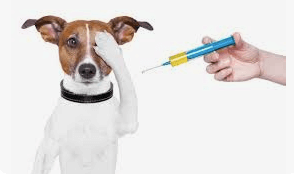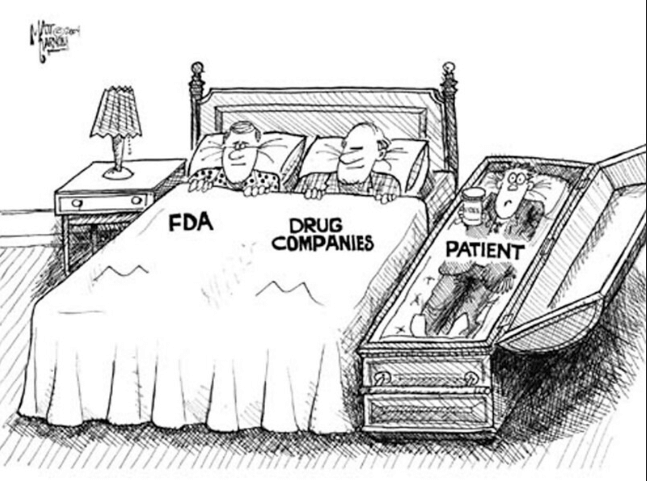Vaccine reactions are very common. Vaccines can be an important part of your dog's health, but they must be administered carefully. If they are not administered carefully, vaccine reactions can occur and are quite common. These reactions are also referred to as vaccinosis, which are often misdiagnosed as allergies, autoimmune diseases or behavioral issues, when vaccines are the most likely culprit.
According to Charles Loops, DVM, vaccinosis "is a disease syndrome caused by a weakness that is precipitated by vaccination." He also states that vaccinosis is becoming rampant in both dogs and cats and examples of vaccinosis include "autoimmune disease, such as irritable bowel disorders, lupus and pemphigus; hypothyroidism in dogs, eosinophilic skin disorders...and chronic skin disease or allergic dermatitis in dogs and cats." Vaccine reactions are very common and becoming even more common.
In fact, this 2005 study determined the incidence rates and potential risk factor for vaccine-associated adverse reactions diagnosed within 3 days of administration. The study found that "young adult small-breed neutered dogs that received multiple vaccines per office visit were at greatest risk of a vaccine-associated adverse reaction within 72 hours after vaccination." Vaccine reactions are very common.
Other documented factors that increase the risk of vaccinosis include:
- Genetic Predisposition: Many pure-breed dogs are more susceptible, like bulldogs
- Changes in reproductive hormones due to lactation, pregnancy or maturation
- Other health issues or co-morbidities such as obesity
- Environmental toxin exposure (like glyphosate)
- State of the gut microbiome
- Type of vaccine and adjuvant used
- Pre-existing allergies
If your dog has any of the above, they will be more likely to have an adverse reaction to vaccines. It is also possible that many chronic conditions in dogs are vaccine-related. Charles Loops, DVM believes "many generations of over-vaccinating animals seem to be bringing out deep, chronic disease syndromes." Vaccine reactions are very common.
The reason why dogs that received multiple vaccines per office visits are at the greatest risk of vaccinosis because the liver is already working on overdrive. More vaccines puts more strain on the liver, which is a vital organ for health. It is involved in the following biochemical processes:
- Digestion: Produces bile, a fluid that helps break down food
- Detoxification: Filters harmful substances from the blood and removes toxins
- Metabolism: Metabolizes proteins, carbohydrates, and fats so the body can use them and stores glycogen which is an energy source as well as vitamins
- Immunity: Supports optimal immune health
- Blood clotting: Produces substances to help blood clot
- Blood regulation: Regulates the amount of blood in the body and most chemical levels in the blood
The dose determines the poison. So if your dog is regularly exposed to toxins, such as glyphosate in the food they eat and vaccine adjuvants, over time, their liver becomes bombarded and it's ability to perform these vital functions, particularly detoxification becomes impaired, making your dog susceptible to vaccinosis. If your dog is predisposed, they then are even more susceptible.
The AKC recommends vaccinating often and assumes a one size fits all approach, which is a big problem when it comes to keeping dogs healthy and thriving. We believe the AKC are outdated and do not consider the unique bio-individual needs of each dog. Additionally, vaccines are not tailored to meet the individual needs of each breed, which is why a 4lb Yorkie receives the same amount of vaccine as a 100lb Saint Bernard. It's not just the vaccine, it's also the vaccine ingredients, which include adjuvants and preservatives that your dog may not respond well to. Vaccine reactions are very common.
In order to help your dog avoid vaccinosis, there are things to be done. First, feed a nutrient-dense diet, which does not include kibble, prescription or not. Second, vaccinate very carefully if you decide to vaccinate, but always ask your vet to complete a titer test to determine antibody levels, or levels of a protection against certain diseases. Odds are that if they have received core vaccinations, they are probably set for life because vaccines are designed to last in the body for 7 - 15 years. If your dog is sick, you should not vaccinate. If you have a bulldog, you should not vaccinate at all.

Ultimately, vaccine reactions are very common. Your dog's health is your responsibility and making informed choices will help you help them live a long, happy and healthy life that you both deserve.
Donate to Bobzilla.org

$5.00
The veterinary business is business which is not in the business of curing your animal, but Bobzilla's business is. Bobzilla is committed to one hundred percent transparency in all of its scientific research into animal wellness and prevention of disease and one… read more




